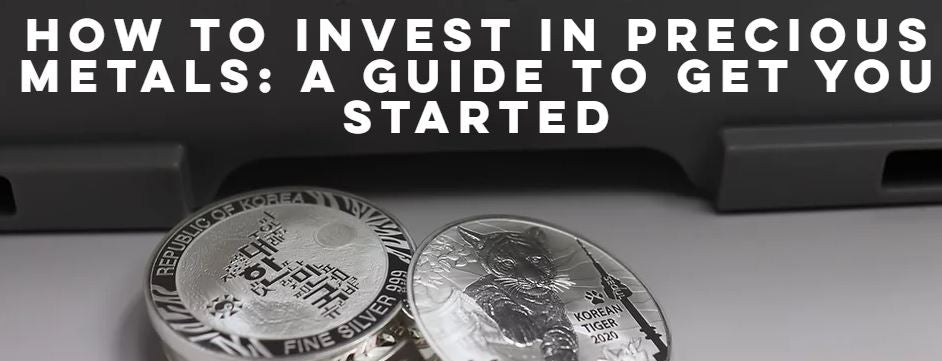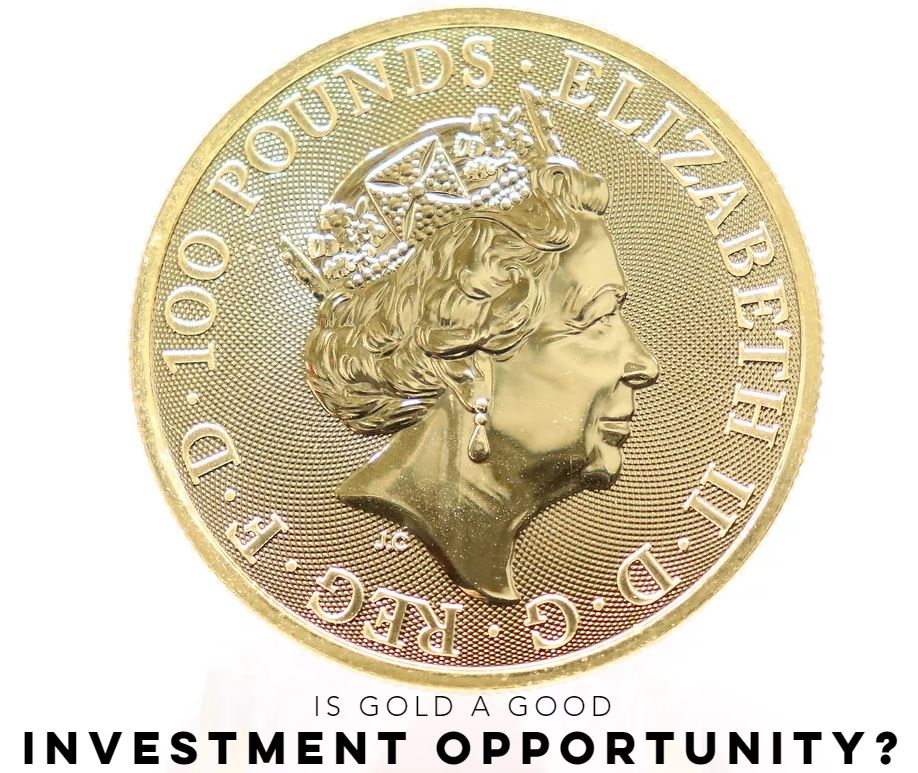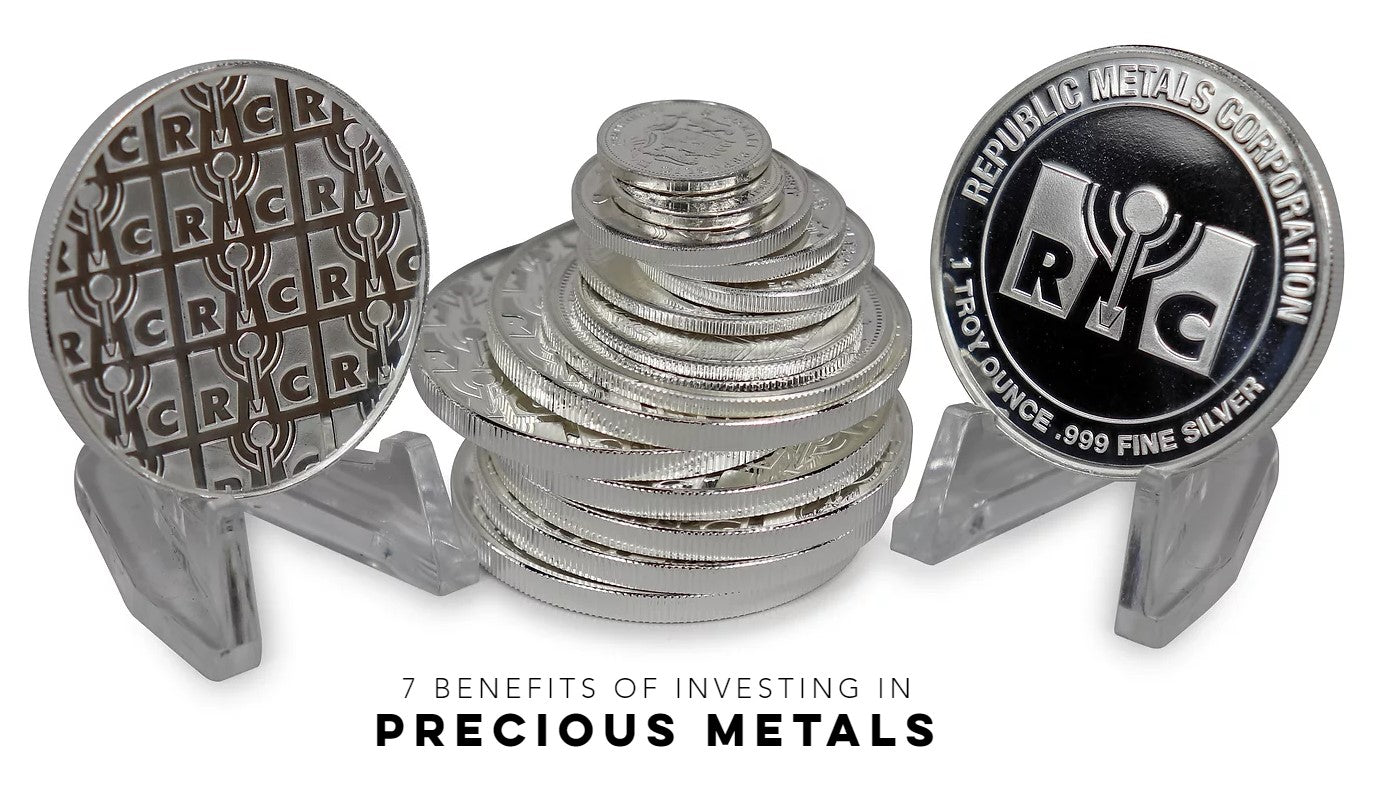James Cook - January 16th, 2021
Not As Worthless As You Think: What is Junk Silver?

If you're interested in investing in silver, your main goal is likely how you can make money at it fast. You may be thinking, "How should I start investing in silver? Should I buy physical or non-physical silver?"
However, among all your questions, you should also add, "What is junk silver?" Junk silver often escapes the eyes of many silver investors. After all, with the name "junk" silver, the commodity doesn't sound like a very attractive investment.
But, in fact, junk silver can be a very valuable investment if you know what to do with it. If you're interested in learning more about junk silver coins and even investing in junk silver, you're in the right place. Here, you'll learn all about the difference between ordinary silver and junk silver, as well as why junk silver can make a great investment.
Without taking up any more time, let's take a look at what "junk silver" means exactly.
What Is Junk Silver
The origin of the term "junk silver" all began in 1965. Before this year, all dimes, quarters, and half-dollar coins in America were around 90 percent silver. After 1965, these coins were instead made with cheaper metals such as nickel or copper and plated over to preserve their silver appearance.
The term "junk silver" does not mean that these coins made before 1965 were actually junk since, of course, they are mainly composed of silver which is even more valuable than it was back then. The reason junk silver goes by this misleading name is that these coins are considered junk by coin collectors.
Junk silver coins contain no numismatic or collectible value, meaning they have value based on their precious metal content rather than their rarity or minting background. Even though junk silver coins may not have value to coin collectors, this does not mean they are not valuable to potential silver investors.
When referring to junk silver coins, you may come across the terms "face bag" or "junk silver bag." Before 1965 when these silver coins were still being minted and still in circulation, a face bag would be a bag with a total value of $1,000 in junk silver coins. This amount of junk silver coins combined, each about 90% silver, would contribute to about 723 ounces of silver.
However, as people passed these coins around over time and exposed them to wear and tear, it was inevitable that some of this silver would become lost. This would lead to the net amount of 723 ounces of silver decreasing to 715 ounces. 715 is an important number as it is the number used to measure the spot price of silver.

1887 Morgan Dollar, worth 25 times more than its face value, is comprised of 26.73 grams of a Silver and Copper alloy. Photo Credit: Investor Crate facility WEST.
The Details Of Junk Silver Coins
The spot price of silver is the price silver currently holds on the stock market. Spot prices change all the time, so they should not influence your decision to invest in silver too heavily. While the price of silver can be volatile at times, it is generally considered a stable investment and is often likened to gold investing.
As for the magic number 715 and the silver spot price, you should know that if silver's spot price increases by a single cent, a face bag of junk silver coins will increase by $7.15. This ratio carries on even with larger values.
After 1965, it's obvious that there would be a problem with coins that are worth more than their original value due to their silver content. So, to address this problem, it became legal to melt down junk silver coins to extract the silver itself. This silver can be collected and grouped into a larger silver mass such as a bar or other form.
Those who melt down their junk silver coins either keep the silver mass for themselves or decide to sell it. However, if you're interested in investing in silver, you might want to keep the silver you get from junk silver coins for one special reason: there is only a limited amount of junk silver coins since no more are being produced.
Because of this, the value of the silver in these coins and sometimes the coins themselves may be worth much more than even the spot price of silver.
How To Know If You Have A Junk Silver Coin On Your Hands
You might think that knowing if you have a junk silver coin would be pretty easy to find out just by looking at the date on the coin, but the task can be harder than you'd expect. This is because junk silver coins have had several decades to wear down. Some of the older junk silver coins you may come across may be so worn down or dirty that it is impossible to see when the coin was first minted.
Even if you can't see if the coin was minted before 1965, there are a few things you can look for. When you spread out all your quarters and dimes, try to examine the edges of the coin's decorations. These edges will usually have a brownish hue because the coin is composed of copper rather than silver.
Instead, if your coin does not have a brown color around the edges but instead has remained silver, this is a good indicator that you are dealing with a junk silver coin.
Understanding The Value Of Junk Silver Coins
By the end of this article, you should no longer be asking yourself, "What is junk silver?" You should now know all about junk silver coins and their great value to investors. With this information, you can decide whether or not investing in junk silver sounds like a good idea for you.
Also, check out our Constitutional Silver Crate which allows you to receive 90% Silver Coins each month in the mail!
To learn more or if you have any questions, contact us here.

Old renditions of U.S. Dimes that contain 90% Silver and 10% Copper.




No junk silver !
This is the 2nd time I am reading over this post, except this time I have involved my family. We are all taking a second look at our change and have found some really nice coins that we are putting in our coin bank. This is just for fun. Looking at the coins, checking the dates, noting the changes between the old and new. I think I will pick up a few of those coin holders – I would like to keep a few of these coins aside just for us.
I never knew this – good to know
The origin of the term “junk silver” all began in 1965. Before this year, all dimes, quarters, and half-dollar coins in America were around 90 percent silver. After 1965, these coins were instead made with cheaper metals such as nickel or copper and plated over to preserve their silver appearance.
I love junk silver, I have probably 5 oz of “junk” silver just collecting dust.